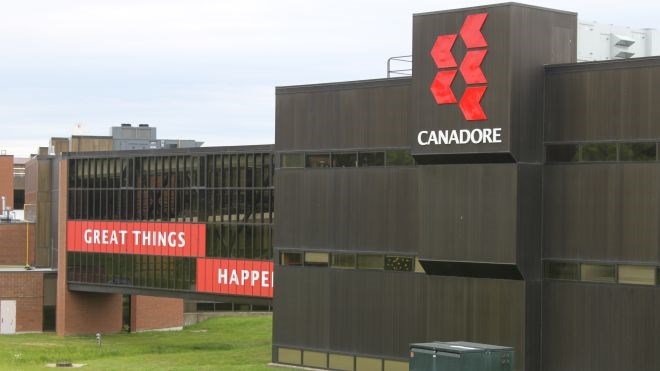Last night, the bargaining team for faculty at Ontario’s 24 public colleges has received a strike mandate from its members, setting the table for collective bargaining that is scheduled to resume next week.
Canadore College President George Burton, however, said it would still be business as usual for students and staff—who’ve just started the fall term this academic year—and that he had faith in the system, saying the strike mandate isn’t too surprising.
“It’s part of some bargaining processes,” Burton said about the strike mandate. “Of course, we’re anxious to continue to support a negotiated settlement that is fair to faculty and affordable to the colleges. We are taking this in stride and we’re happy the parties are back to the table on Sept 18.”
However, in the Ontario Public Service Employees Union (OPSEU)’s press release following their decision last night, they were adamant that things need to change across the Province.
“College faculty from across the province debated and voted on 16 proposals to improve the quality and fairness of the college system in Ontario,” said union bargaining team chair JP Hornick in the release. “Since bargaining started 10 weeks ago, management has ignored every single one of them. Hopefully, this strike vote will be the incentive the colleges need to start negotiating for real.”
Key issues in the talks include the role of faculty in academic decision-making and fair treatment for contract faculty.
According to the release, 81% of college teaching is done by contract faculty, all of whom have no job security and are paid significantly less than the negotiated rates for full-time permanent faculty. With the introduction of Bill 148, the Fair Workplaces, Better Jobs Act, “equal pay for equal work” has become a top issue not only for college faculty but for college administration as well.
Burton said locally, Canadore staffs according to enrollment and uses a mixed model of staffing to deliver the programs.
“Our staffing is dictated by program needs, enrollment, and jobs,” he said. “And we need to ensure we can offer programs in an affordable manner… so we need to hire that mirrors the realities of the programs and the budget.”
Burton said that strikes can be very disruptive and stressful for already busy and stressed students enrolled in programs.
“We do have a negotiation process we’re hoping parties continue to follow,” he said. “Because the students are the core of all that we do and we don’t want to cause stress on them and we want to ensure any impact on their studies are minimal.”
He said at this stage of the process, he was confident that both sides will negotiate a settlement and students shouldn’t panic in response to last night’s vote.
“With Bill 148 on the horizon, college management simply cannot ignore the rights of contract faculty,” said OPSEU President Warren (Smokey) Thomas in the release. “Equal pay for equal work is a fundamental feature of the new bargaining landscape, and it will be a key feature in any settlement.
“College faculty has the full support of their union in getting a fair collective agreement that addresses their issues,” he added. “And we have $72 million in the strike fund to back that up.”
However, Burton said they’d continue to bargain, but resources become strained meeting demands when no new funding is given locally for the College to accommodate it.
“Locally, the Union proposal would mean an addition $6 million to our payroll costs and I don’t know where that would come from since there is no new money coming to us,” he said. “It’s about being affordable and responsible.”
Despite his confidence in negotiations, Burton said the college would formulate contingency plans if the Union triggers a strike, but had faith in the system coming through for both parties.
